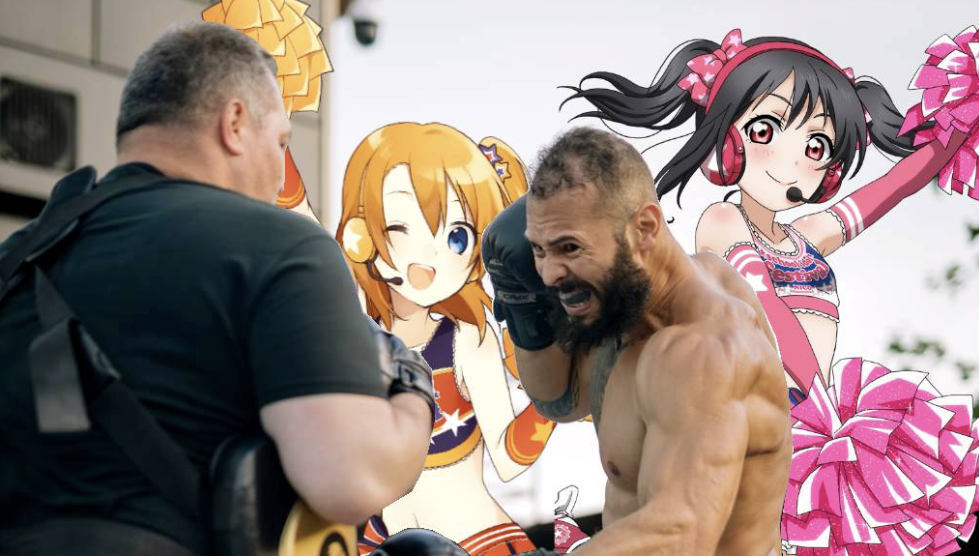Anime has become so pervasive that even people such as Andrew Tate are using it for marketing. There can be any number of practical reasons for his decision to post more two-dimensional women than three-dimensional ones, recently being charged with rape and human trafficking not being the least among them, but it’s also a trend bellwether.
Anime, and more particularly, the idea that anime women are superior to flesh-and-blood women, isn’t new. In the mainstream, these ideas have been circulating as a punchline for over a decade: in 2010, James Franco appeared on 30 Rock with a dakimakura, a Japanese body pillow with an anime “waifu” printed on it. Online, this idea is about as old as the Internet itself, though picked up in the mid-2000s. In Japan, the phenomenon can be traced back to at least the 1970s, and in fact, may even be much older. What is different, however, is that in recent years, the sentiment has taken on new political salience though, as anime has become something of a “lingua franca” among disaffected young men.
There’s a little-explored theory that says there’s something about narrative structures and themes that are common in anime that’s more appealing to the autistic mind. And so, the theory goes, as autistic populations grow, so does the popularity of anime. But more likely, anime’s mass appeal can be explained by the fact that it remains untouched by American social politics. There is no wokeness in anime; no enforced political correctness; no anime equivalent of a black Little Mermaid. One way to conceptualise anime is that it’s an artifact from a pre-GamerGate media landscape. The mores that, for some, stifle Hollywood’s (or the video game industry’s) creativity have no cachet in Japan. Because of this, anime can better reflect the values that certain young men long for.
This becomes particularly true in anime’s depiction of women. Anime women are emblematic of qualities that some men believe no longer exist in 3D women: they’re virginal; they’re fit and pretty; they’re feminine; they’re not “stained” by the values of third-wave feminism. Anime women can also be canvasses to project your own ideals on, especially if you’re engaging with original art, as opposed to fan art.
There are also men who aren’t comparing human women to anime women at all. Rather, these men are so disconnected from the physical world, they view anime women as “real women” and human women as a cheap imitation of femininity.
These beliefs manifest sincerely and ironically in equal measure, and young men aren’t the only population to engage in them. In Left-leaning, female-dominated communities, like slash fandoms, something similar happens with certain fictional depictions of men. In these communities, twinkish, often gay men are explicitly elevated as superior to physical-world men because they lack traits deemed as “toxically masculine.”
Certain types of anime can also function as an important signal of group membership. In some Right-wing Internet communities, posting pictures of young anime girls in sexually compromising situations, known as “loli” or, colloquially, “cunnyposting,” can be (but importantly, not exclusively) used as a gatekeeping tactic. Loli is controversial even among dissident online spaces, as there are many people who consider it to be tantamount to child pornography.
A willingness to post loli can, therefore, be a mark of authenticity, as the barrier to entry for “dissident” spaces lowers, and the boundaries become more porous. Loli is one of the last taboos. Whereas more people may be more comfortable anonymously or pseudonymously posting a slur, remarking on racial differences, or sharing incendiary opinions like, “Hitler was a good man,” fewer will post loli. Thus, it shows a willingness to be in these communities beyond a desire to be contrarian, edgy, or to go where the energy is.
It remains to be seen how long this taboo will last.











Join the discussion
Join like minded readers that support our journalism by becoming a paid subscriber
To join the discussion in the comments, become a paid subscriber.
Join like minded readers that support our journalism, read unlimited articles and enjoy other subscriber-only benefits.
Subscribe